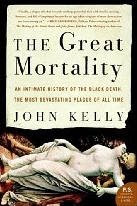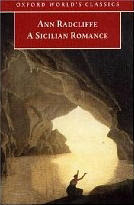The Minotaur by Ruth Rendell
 Kerstin Kvist expects her position at Lydstep Old Hall to be a regular nursing job. Instead she finds her patient, John Cosway, seems neither to need or want her help, despite having asked for it. And just how did he manage to request a nurse, when he spends all his days heavily drugged? Having little else to do, Kerstin becomes an observer and chronicler of the Cosway family and their doings, and explores the estate in search of an elusive maze whose location no one will reveal. Soon she comes to suspect that John is not schizophrenic after all; and that his family might have reasons of their own to keep that diagnosis in place.
Kerstin Kvist expects her position at Lydstep Old Hall to be a regular nursing job. Instead she finds her patient, John Cosway, seems neither to need or want her help, despite having asked for it. And just how did he manage to request a nurse, when he spends all his days heavily drugged? Having little else to do, Kerstin becomes an observer and chronicler of the Cosway family and their doings, and explores the estate in search of an elusive maze whose location no one will reveal. Soon she comes to suspect that John is not schizophrenic after all; and that his family might have reasons of their own to keep that diagnosis in place.
This book takes a gothic-novel atmosphere and plunks it down in the least gothic place you could imagine - a picturesque English village. And it works. The Cosways are about as different as members of the one family can be, there’s plenty of intrigue in the village, and then there’s the mystery surrounding John.... The true nature of his condition is obvious (to the reader, if not to Kerstin in the 1960s) but the reasons behind his treatment are less easy to spot.
Aside from Kerstin’s purposelessness at the Hall, my biggest issue with the book was her name. It’s established on page 1 that it’s pronounced Shashtin (and yes, this is relevant to the novel). But I had endless difficulty seeing Kerstin on the page and making the voice in my head turn K into Sh. Though it did at least give me new sympathy for all those who struggle with my own name (i.e. everyone).
And I ended up with a bad case of library envy.
Rating: B
Naked in Death by J. D. Robb
 The year is 2058. The place is New York City. Some of the details of everyday life might have changed in the next few decades, but crime is still much the same. Lieutenant Eve Dallas is working on a strange one - a serial killer targeting prostitutes (sorry, licensed companions) with handguns, the kind that fire bullets, the kind that have been museum pieces for years. The murderer may or may not be the enigmatic billionaire Roarke, whose multitude of business interests aren't necessarily all legit. And Eve may or may not be falling for him.
The year is 2058. The place is New York City. Some of the details of everyday life might have changed in the next few decades, but crime is still much the same. Lieutenant Eve Dallas is working on a strange one - a serial killer targeting prostitutes (sorry, licensed companions) with handguns, the kind that fire bullets, the kind that have been museum pieces for years. The murderer may or may not be the enigmatic billionaire Roarke, whose multitude of business interests aren't necessarily all legit. And Eve may or may not be falling for him.
I don't generally read anything resembling sci-fi, but I liked the futuristic world-building here. It's a combination of the familiar and the strange, and manages to be bleak without being dystopian (real coffee, as opposed to cheap swill, is an expensive luxury - what a perfectly horrendous thought!). And how telling that the biggest advances have been in the field of cosmetic improvements.
In addition to the leads there's a great supporting cast, especially Eve's colourful friend Mavis and Roarke's snooty butler, Summerset. Given that Summerset regards Eve in the light of something the cat dragged in, I can only imagine what his reaction would be if he met Mavis (and I hope that, further on in the series, Summerset meets Mavis).
Unfortunately it suffered from the weight of expectations. I've heard a lot about the series over the years, and especially a lot about Roarke. I liked him, and I think he's a great match for Eve, but I didn't fancy him like every other reader seems to. Partly it was the nicotine addiction; even if you can access the technology to cure any ill effects, it's still a habit I can't abide. And partly it was because, in every other respect, he was just too good to be true.
Rating: B+
Last Rituals by Yrsa Sigurdardóttir
 The head of the history department at Reykjavik University arrives at work early one morning and finds the mutilated corpse of a foreign grad student stuffed in the alcove with the photocopier. An arrest is swiftly made; but Harald Guntlieb's parents in Germany don't believe the man in custody killed their son. To prove it, they hire German-speaking lawyer Thóra Gudmundsdóttir, who takes the job only because she needs the money. Working with charmless private investigator Matthew Reich isn't Thóra's idea of fun, and nor is poking into the unsavoury details of Harald's life. Drugs, money, women, an obsession with the bloodthirsty history of witch-hunting - which, if any, led to his death?
The head of the history department at Reykjavik University arrives at work early one morning and finds the mutilated corpse of a foreign grad student stuffed in the alcove with the photocopier. An arrest is swiftly made; but Harald Guntlieb's parents in Germany don't believe the man in custody killed their son. To prove it, they hire German-speaking lawyer Thóra Gudmundsdóttir, who takes the job only because she needs the money. Working with charmless private investigator Matthew Reich isn't Thóra's idea of fun, and nor is poking into the unsavoury details of Harald's life. Drugs, money, women, an obsession with the bloodthirsty history of witch-hunting - which, if any, led to his death?
The mystery plot was everything I could have asked for - it kept me guessing, allowed me a small moment of satisfaction when I identified the killer (albeit not the motive) one step ahead of the characters, and made such perfect sense in the end that I felt a trifle foolish for not seeing the very well-planted clue that could have revealed everything. It also had one of the most ... eccentric victims I encountered all year. As if the unhealthy fixation on the extermination of alleged witches wasn't enough, Harald had a taste for the more gruesome forms of body modification. (Unfortunately this reminded me of a particularly stomach-turning episode of CSI, which was a mental image I could have done without.)
I liked Thóra a lot; she’s an ordinary woman trying to make the best of life’s ordinary problems. Her battles with her recalcitrant mechanic and bad-tempered receptionist offered some light relief from the gruesome murder case. Best of all was the armchair travel. This is the warm and jetlag-free way to see Iceland; by the time I closed the book I almost felt like I'd been there. The vicarious tourism was good enough that I forgave the book its ORS (Obligatory Romantic Subplot).
Rating: B+
































